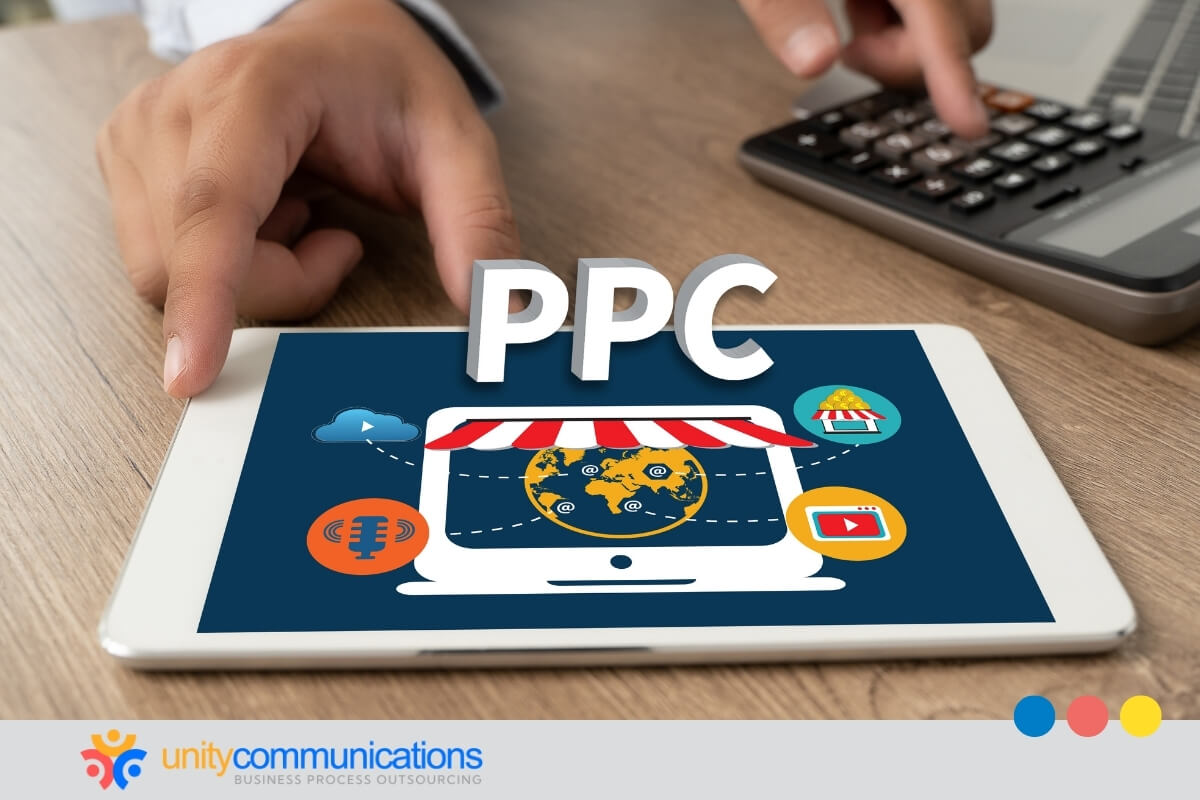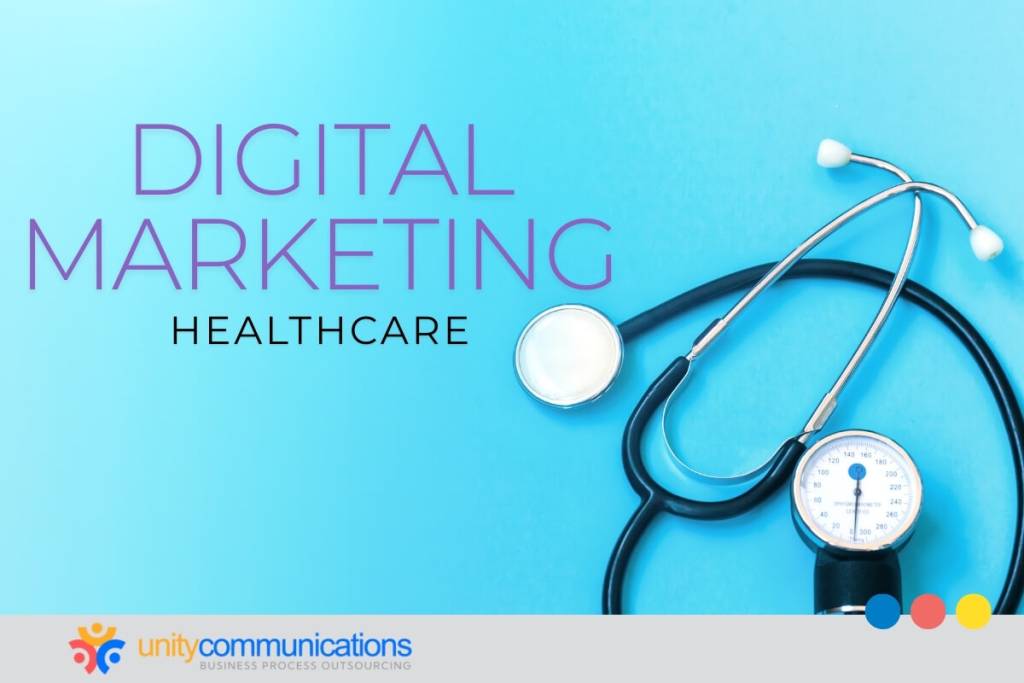Table of Contents
Digital marketing is essential for small healthcare practices looking to expand their reach and improve brand perception. Implementing the right strategies can increase visibility and foster trust.
This blog explores eight digital marketing tips that can drive growth for your practice. If you’re considering outsourcing digital marketing services, this guide will help you understand how to optimize your online presence.
Keep reading to discover practical solutions for enhancing your practice’s digital marketing efforts!
Eight strategies to master digital marketing in small healthcare practices

The healthcare industry is highly competitive. Digital marketing is an effective tool for your independent healthcare practice to connect with patients, boost online visibility, and foster growth. Examine these eight helpful tips to master digital marketing.
1. Develop a user-friendly and informative website
A well-designed website increases your digital marketing success. As the first point of contact, it must offer a user-friendly, informative journey for potential patients. Here’s how to optimize your website:
- Mobile optimization: Many individuals seek healthcare services on smartphones, so a mobile-responsive website is necessary. Visitors will abandon an online page that is difficult to use on their digital devices.
- Clear contact information: Keep your phone number, email address, and workplace location easily accessible. If necessary, include online appointment scheduling.
- Informative content: Your website should thoroughly explain your offerings, specialties, and patient procedures. When interacting with patients, keep your terminology basic and avoid medical jargon.
- Easy navigation: A fresh, well-organized layout enables visitors to effortlessly find what they’re searching for, whether it’s information about your services, patient data, or the latest blog post.
2. Implement search engine optimization (SEO) to boost visibility
SEO is crucial in digital marketing, driving online visibility and helping patients find your healthcare practice. Refining your website content and structure can improve search engine rankings and drive organic traffic.
Below are key SEO tactics you can use:
- Local SEO: Optimize for location-based keywords by including your city or neighborhood in service descriptions, meta tags, and page content. Local SEO is essential when you want more exposure in your community.
- Keyword research: Identify search terms patients use for your services with tools, including Google Keyword Planner.
- Content optimization: Utilize targeted keywords in content, blog posts, and frequently asked questions (FAQs) to enhance search rankings.
- Google Business Profile: Claim and update your Google Business Profile listing with exact details, including hours, services, and reviews, to show in local search results and Google Maps.
3. Utilize social media platforms to engage with patients
Social media is an excellent tool for digital marketing in healthcare, allowing your practice to stay in touch with patients, exchange knowledge, and cultivate a dedicated network. You can boost your reach and patient engagement by consistently posting valuable information.
Here are strategies to harness social media:
- Select the right platforms. Focus on platforms where your patients are active. Facebook and Instagram are perfect for highlighting your practice’s individuality, sharing patient testimonials, and posting educational content.
- Publish instructive content. Provide regular updates on health suggestions, wellness advice, and industry news. This might help establish your practice as an expert in your subject.
- Interact with patients. Reply quickly to questions and comments on social media to personalize your practice and develop trust with patients.
- Publish patient testimonies. Provide encouraging patient accounts to persuade others about your services.
4. Create valuable content to educate and inform your audience
Digital marketing in healthcare focuses heavily on content. By producing beneficial, insightful, and pertinent information, you can empower your audience while demonstrating your knowledge.
Below are the types of content effective in healthcare digital marketing:
- Blogs: Regularly distribute blog posts about issues relevant to your practice. These can include describing prevalent medical problems and providing advice on how to live a healthy lifestyle.
- Videos: As they become popular, videos can explain complicated healthcare issues in an understandable format. Consider making them for patient FAQs, treatment explanations, and wellness suggestions.
- Infographics: Use visually appealing illustrations to explain medical ideas. Infographics are simple to publish on social media and can help patients understand information better.
- Patient resources: Your website should offer printable resources, such as health guides. It adds value to your practice and improves the patient experience.
5. Manage online reviews and build a positive reputation
Online reviews are essential in healthcare digital marketing. Managing patient feedback raises your trustworthiness and entices new patients.
Here’s how to manage them:
- Encourage patient reviews. Invite pleased patients to submit feedback on Google and other review sites. You can also send follow-up emails containing links to review websites.
- Respond to the reviews. Reply to their feedback immediately, whether favorable or bad. Acknowledging comments demonstrates that you appreciate patient input and contribute to building trust.
- Address unfavorable feedback. If you receive a negative comment, respond professionally. Apologize for any issues and propose a solution to convert an unhappy patient into a devoted one.
6. Leverage email marketing to communicate with patients
Email marketing is still an efficient technique for connecting with your patients. A solid email strategy can help you build relationships, give helpful updates, and increase patient retention, benefiting your practice’s bottom line.
Check the following communication methods:
- Newsletters: Provide regular newsletters featuring health tips, practice updates, and new services to keep your practice at the forefront of the audience’s minds. These updates can help patients feel informed and engaged.
- Appointment reminders: Automated email reminders about upcoming appointments help reduce missed visits and improve patient attendance.
- Personalized offers: Email customized promotions, including treatment discounts, to encourage loyalty and strengthen relationships with existing patients.
- Patient surveys: Submit surveys after appointments to collect valuable feedback on your service and patient experiences. This insight helps you refine your practice and identify areas for improvement, promoting better patient satisfaction.
7. Utilize pay-per-click (PPC) advertising to attract new patients
PPC advertising allows your practice to reach new patients quickly. With PPC campaigns, you can target specific keywords and attract individuals searching for healthcare services in your area.
This is how to implement it:
- Target local keywords. Use local keywords in your PPC campaigns to draw patients in your local area. For instance, “pediatrician near me” or “family doctor in [city].”
- Prepare a budget. If handled correctly, PPC can be highly cost-effective. Set a fund that aligns with your goals and track your ad spending closely.
- Perform A/B testing. Experiment with different ads, landing pages, and calls to action to maximize your ads and enhance performance.
- Gauge return on investment (ROI). Monitor the profitability of your PPC campaigns to know which ads deliver the best and most cost-effective results.
8. Measure the effectiveness of your digital marketing efforts
To effectively grasp the impact of your digital marketing efforts on your healthcare practice, you must periodically analyze their performance through established metrics. By adjusting your strategies based on performance data, you can continuously improve your digital marketing efforts and grow your practice.
Here’s how to assess effectiveness:
- Use analytics tools. Applications, including Google Analytics, enable you to scrutinize website traffic, user behavior, and conversions.
- Monitor social media engagement. Track the performance of your posts, including likes, shares, and comments, to measure what resonates with your audience.
- Review PPC campaigns. Continuously review and modify your PPC campaigns according to performance metrics such as click-through rate (CTR) and conversion rate.
- Consider patient feedback. Regularly evaluate patient input and comments to determine areas for enhancement in your online marketing campaigns.
Digital marketing outsourcing for small healthcare practices

Business process outsourcing (BPO) is a practical way to enhance digital marketing efforts in healthcare. What is BPO? This approach allows your practice to access expert resources and scale promotional initiatives without the overhead costs of an in-house team. It also offers flexibility to adapt strategies as your practice and patient needs evolve.
Here’s how outsourcing works in healthcare digital marketing:
- Expertise and focus: BPO lets you concentrate on patient care while third-party specialists handle the technical aspects of digital marketing. A BPO provider adds expertise in SEO, content production, social media, and paid advertising.
- Improved website construction: The BPO team can design, improve, and maintain a user-friendly, informative website to attract and keep patients, increasing conversion rates and engagement.
- SEO enhancement: The outsourcing firm implements optimization methods that improve internet visibility, making it easier for local patients to find your office.
- Social media management: Outsourcing digital marketing management provides professionals who can continuously communicate with patients across several channels, keeping your practice relevant.
- Content creation: Marketing professionals can produce top-quality and engaging material that informs your target audience, allowing you to establish authority and trust with prospective patients.
- Reputation management: Outsourcing allows your BPO partner to handle your online reviews and patient comments, assisting your practice in keeping a positive digital image. Consistent feedback monitoring helps build patient trust.
- Email marketing with specific recipients: Third-party contractors can develop and launch compelling email marketing efforts, keeping patients informed and involved with your practice.
- PPC advertising: Outsourcing in digital marketing can help you create effective PPC campaigns that attract new patients while properly controlling your ad expenditure. Experienced teams can also adjust real-time ads to improve their performance and outcomes.
The bottom line

These digital marketing strategies can enhance patient engagement, improve online visibility, and build lasting relationships. Partnering with the right healthcare BPO provider simplifies your efforts and delivers measurable results.
Let’s connect to discuss how outsourcing digital marketing solutions can help expand your reach, attract new patients, and position your practice for sustainable growth. Take the next step today!




